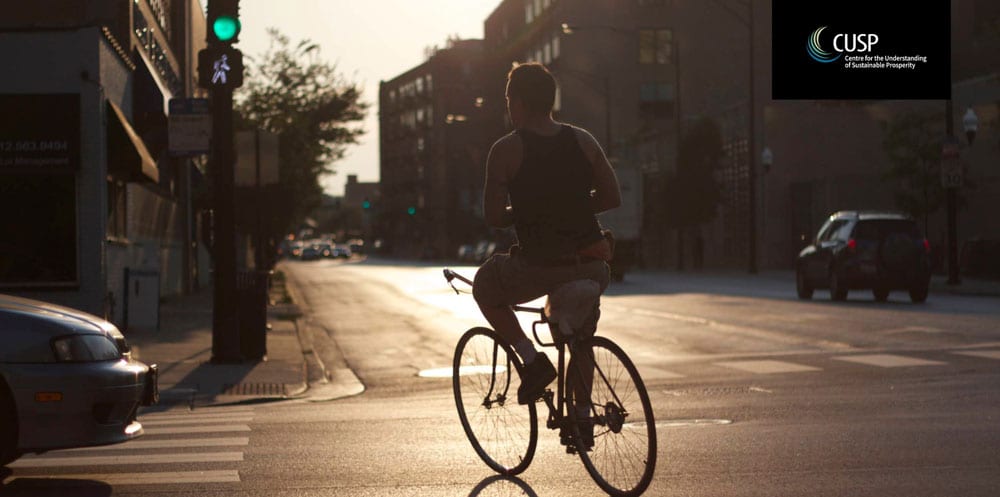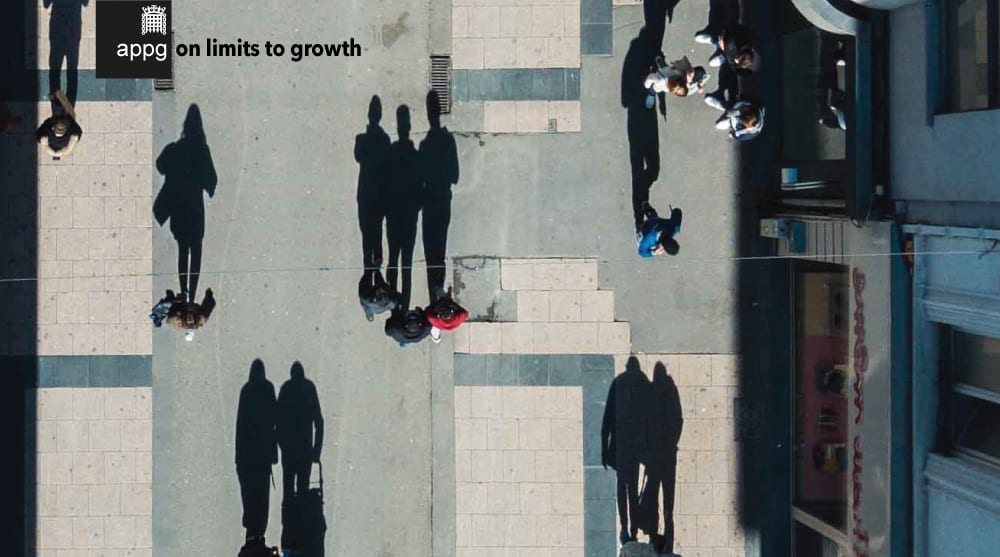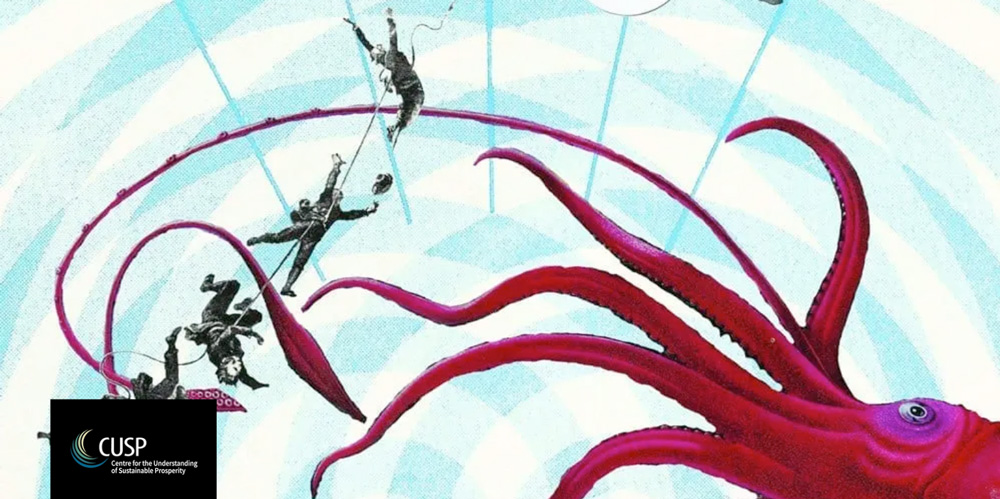You don’t have to live like this—review of Kate Soper’s Post-Growth Living
In her new book, Post-Growth Living: For an Alternative Hedonism, Kate Soper calls for a vision of the good life not reliant on endless economic growth and points us to the ways in which our current patterns of living are not only environmentally harmful, but also make us miserable. A provocative and necessary book, Nick Taylor writes, that provides us with the means to rethink consumption, work and sustainable prosperity without losing sight of what makes us feel good. (This blog also appeared on the PERC website.)
What kind of changes will the Covid-19 pandemic bring about over the long-term? While this question is on the minds of many, for those who study and work towards making our societies and economies more sustainable it brings particular concerns. Global emissions have seen a record-breaking drop during the pandemic, but not enough to slow the overall trend in atmospheric CO2 concentration, which reached its highest ever level in May, and not even enough to bring us close to meeting the 1.5C global warming target. How we respond to and attempt to recover from the deepest recession on record in a way that is not simply about restoring GDP growth is a question that should involve us all.
For critics, the pandemic has made an easy but misleading target of the post-growth or degrowth movement. They falsely equate the social and economic devastation wrought by coronavirus with the planned, long-term downscaling of society’s throughput (the materials and energy a society metabolises) that degrowth advocates argue for. Sceptics of ‘growth as prosperity’ do not want a recession, or, as is looking increasingly likely, a depression. Indeed at their most compelling, arguments for moving beyond growth as an overarching economic, social and political goal draw on the promise that a sustainable society can and should be a better, more equal and more prosperous society.
Kate Soper’s latest book, Post-Growth Living, makes an essential contribution to this promise by exploring the ways in which countering capitalist consumer culture can make us feel better, bring us together socially and deliver a more just, sustainable, economy and society. Soper’s concept of ‘alternative hedonism’ uses the foil of our existing disaffection with consumerism, social atomism and work-induced time scarcity to prefigure more fulfilling ways of living within ecological limits. Even amongst the more affluent, these seeds of desire for more time, connection and care might point their way to alternatives. We see this manifest, for example, in the various niche communities seeking to ‘downshift’, simplify and ‘minimalise’ their lifestyle, or even ‘retire early’.
To support alternative hedonism on a more widespread and equitable basis, the book argues that something like a four-day working week is necessary. Not only would it reduce stress and improve our physical and mental wellbeing, it would have the effect of reducing dependency on market provision for our needs. Instead of buying into the pre-prepared time-saving meals we see advertised on our commute, for example, we’d have time to take pleasure in cooking. The distribution of, and right to, free time has been overlooked in egalitarian theory and research points to the case that working time regulation would have a more egalitarian effect than other radical policies, like a basic income. The timid attempt to defend it as part of the Labour Party’s offering at the last general election tells us there is still work to be done to convince people of its merits.
Soper is Emerita Professor of Philosophy at London Metropolitan University and has written widely on environmental philosophy, the aesthetics of nature, theories of need and consumption and cultural theory. The positions she has defended across these fields shine through and strengthen her case in this book. Her nuanced arguments about basic needs we might establish as necessary to fulfil leads her here to “delineating an alternative structure of satisfactions”, rather than set out a shopping list of basic or universal needs. But she has consistently argued against the relativist position on needs, which refutes the possibility of establishing ‘basic’ or ‘universal’ needs at all in favour of emphasising social and cultural difference. Here this allows her to set forth an argument for and give meaning to why we should struggle for alternatives that are already bubbling up. As she puts it, the book: “engages with an actually emergent culture of contradictory feeling. It points to expressed interests in less tangible goods – more free time, less stress, more personal contacts, a slower pace of life and so on – as lending support to criticism of consumer culture’s narrow materialism.”
Soper draws on Marxist approaches to environmental degradation but argues that they must reground themselves in alternative visions of living that, in particular, tackle the role of consumption and its ecological and social fallout. We are neither the sovereign individual, “consumer kings” of liberal thought, nor the unfree and manipulated drones that Critical Theory paints as the victims of commoditisation. Neither heroes nor dupes, as she puts it. We’re something all the more interesting and hopeful: reflexive in our consumption, and open to seriously changing our affective and emotional responses to incorporate ways of living and consuming that are more sensitive to issues of inequality, exploitation, degradation and waste.
Soper uses Raymond Williams’ notion of a ‘structure of feeling’ to note the not yet fully articulated or worked out nature of such reflexivity. Though formative, such feelings have resources to draw upon, particularly from history. Instead of techno utopian visions of the future – whether on the Right or Left of the political spectrum – Soper suggests we use “earlier romantic antipathies to modernity” to build, or rebuild, practices and spaces of alternative hedonism. This, however, calls for a cultural politics based on rejecting the regressive elements of traditional society – its gender politics, for example – but that captures a sense of what is lost, and what might be regained.
It is a shame that the book’s publication schedule has meant that it doesn’t comment on the coronavirus crisis. It gives us the tools to grasp the structure of feeling emerging around the positive outcomes of lockdown that some have experienced – volunteering and mutual aid, more time with family, a turn to less materialistic forms of creative production (sourdough bread, anyone?), new cycling and low-traffic infrastructure, the lack of grinding commute and office drudgery.
But, of course, there are many, many more ways in which this crisis is devastating and highlights and exacerbates existing inequalities. Surging online shopping has enriched the barons of the platform economy, as has the structure of Covid-related bailouts. Conviviality must take place at a distance of two metres. Far from heralding a modal shift to walking and cycling (there has been some) it has seen plummeting use of public transport and rocketing private car use. The discovery of the ‘great outdoors’ depends on having access to the ‘great outdoors’. More flexible work can be beneficial, but it depends on who has control over it and how it is distributed (and the distribution of other work such as caring responsibilities). Working from home is enjoyable for some, a nightmare for others and a privilege denied to many more because of the nature of their work. And of course, the question on many people’s minds will be whether they have work at all soon.
Perhaps we can be grateful that the crisis has brought some of these issues out into the open. Much like the broader question of degrowth, though, it hasn’t for the most part done so in the way that anyone would have desired. Any talk about the pleasures of living and consuming differently will have to pay close attention to the unequal access to pursuing such alternatives that the recent crisis has emphasised. There is a nagging worry that to leverage a structure of feeling won’t be enough, or come quickly enough, to attend to some of the social and ecological threats facing us. As Soper might point out, though, how should we imagine and pursue a greener politics of prosperity without articulating why it should have widespread appeal?




